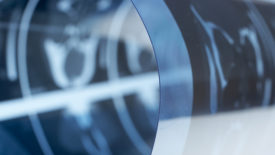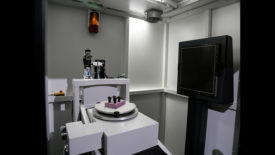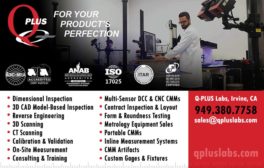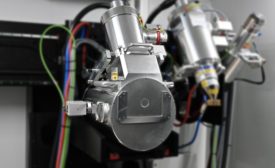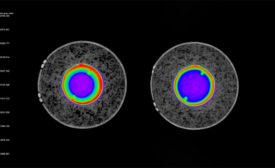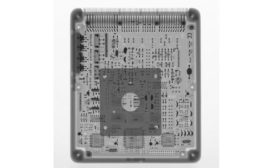Home » CT scanning
Articles Tagged with ''CT scanning''
NDT | Computed Tomography
Industrial CT-scanning systems and analysis software are providing faster insights into manufactured components.
Read More
Test & Inspection
How CT Quality Analysis of EV Batteries Can Help Address Demand and Performance
Higher volumes of new batteries and faster turnaround of recycled materials from those batteries—along with testing of used and repurposed ones—demand the most efficient quality-inspection approaches possible.
September 27, 2024
NDT | X-ray CT
High Speed X-ray Computed Tomography for Quality Control
Advances in X-ray computed tomography enable rapid nondestructive, 3-dimensional inspection of die casted and molded parts.
May 20, 2024
NDT | Computed Tomography
Revolutionizing Manufacturing: The Growing Trends of Industrial CT Scanning
The adoption of industrial CT scanning has transformed product development, manufacturing, and delivery cycles across various industries.
May 15, 2024
NDT | Computed Tomography
Creating the Future of Mobility with CT Inspection of Batteries
Industrial x-ray and CT inspection supports quality control and failure analysis at all stages of a battery's lifecycle.
September 21, 2023
NDT | Computed Tomography
Industrial CT: 3D Inspection and Metrology for 3D Printing
CT inspection of the final part can check that the manufactured part exactly matches the initial 3D design, providing dimensional analysis and metrology of all critical internal dimensions.
October 15, 2021
Computed Tomography: Back to Basics
Computed tomography is a powerful nondestructive evaluation (NDE) technique for both 2D and 3D cross-sectional images of an object from X-ray images.
July 1, 2020
Nondestructive Inspection of Automotive Computers
As with the testing and evaluation of raw materials, controlling the quality of electronic devices is essential
April 8, 2020
Stay in the know with Quality’s comprehensive coverage of
the manufacturing and metrology industries.
eNewsletter | Website | eMagazine
JOIN TODAY!Copyright ©2025. All Rights Reserved BNP Media.
Design, CMS, Hosting & Web Development :: ePublishing


